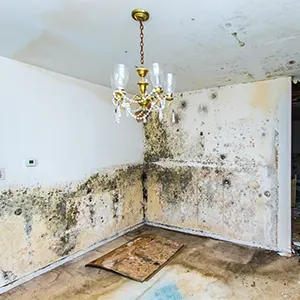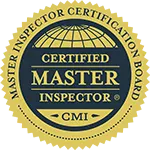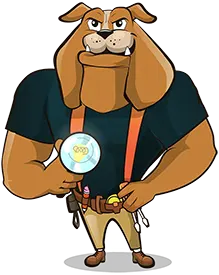If a basement is musty, has blotched walls and ceilings, or has a growth under the carpet then mold has taken hold.

Mold is a health hazard that has many insurance companies scrambling – or refusing coverage.
So what do you need to know about mold to stay out of trouble?
1. Molds are everywhere and have been around forever
It’s not a new problem. And instead of focusing on elimination it’s better to focus on prevention and control – sunlight and ventilation.
2. Use common sense
Overexposure can hurt anyone. Especially asthmatics or anyone with sensitivities (such as infants, elderly, or COPD).
Examples?
- Lower indoor humidity 30-60% by venting bathrooms and dryers to the outside
- Use air conditioners and dehumidifiers
- Increase ventilation in crawlspaces and attics
- Use exhaust fans for cooking, dishwashing, and cleaning
- Reduce condensation on cold surfaces by adding insulation (windows, piping, exterior walls, roof, floors, etc.)
3. You cannot spot “Toxic” or “Black” mold by looking at it
Most molds are black or dark green so the only way to tell for sure is a lab test. Its technical name is Stachybotrys Chartarum or Stachybotrys atra.
4. Most of what’s said about Stachybotrys is overblown
In fact, the Center for Disease Control (CDC) believes there is no difference between Stachybotrys and any other mold. It’s just the most common on building materials so it’s most present in homes. It’s no more toxic than other and the steps taken to remediate Stachybotrys should be the same as any other mold.
5. You can clean mold
Use a 1:16 bleach to water solution to clean mold off hard, non-porous surface
6. You can safely clean areas less than 10 ft²
If you need to clean more than this, read the EPA’s Mold Remediation in Schools and Commercial Buildings.
Throw away any moldy porous material. But, if the porous area is really big, contact a pro to gather it up and remove.
7. Never – and I mean never – mix household cleaners
No matter what anyone says, this is stupid and dangerous. Mix the wrong chemicals together and you might end up with something as deadly as mustard gas!
8. Always get a professional home inspection when buying a home
This article is good, but there’s no replacing firsthand knowledge and practical experience. A professional home inspector will size up the situation and put it into perspective for you.
Find more information at the EPA’s website or the CDC.











